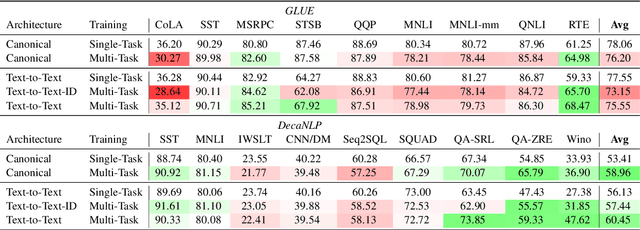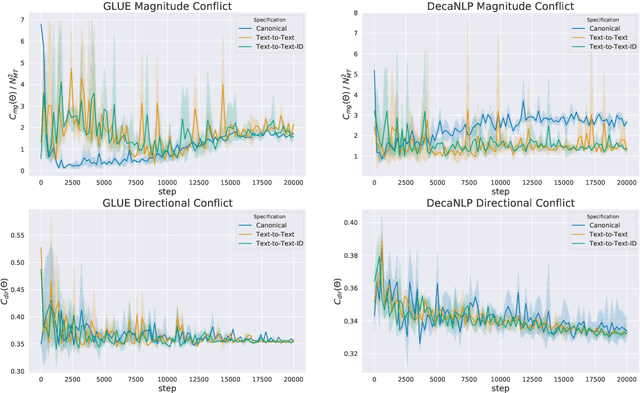Do Text-to-Text Multi-Task Learners Suffer from Task Conflict?
Paper and Code
Dec 13, 2022



Traditional multi-task learning architectures train a single model across multiple tasks through a shared encoder followed by task-specific decoders. Learning these models often requires specialized training algorithms that address task-conflict in the shared parameter updates, which otherwise can lead to negative transfer. A new type of multi-task learning within NLP homogenizes multi-task architectures as a shared encoder and language model decoder, which does surprisingly well across a range of diverse tasks. Does this new architecture suffer from task-conflicts that require specialized training algorithms? We study how certain factors in the shift towards text-to-text models affects multi-task conflict and negative transfer, finding that both directional conflict and transfer are surprisingly constant across architectures.
 Add to Chrome
Add to Chrome Add to Firefox
Add to Firefox Add to Edge
Add to Edge